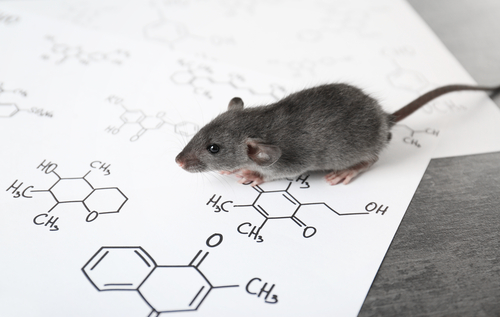Taurine Supplementation Improves Testes Function in Fragile X Mice, Early Study Suggests
Written by |

Supplementation with taurine — a natural amino acid that plays an important role in the brain, heart, and muscles — can partially correct the production of two proteins found deranged in the testes of mice with fragile X syndrome (FXS), a study suggests.
Although this preclinical study is still in its early stages, the findings suggest that taurine may potentially be beneficial in restoring the function of testes, and re-balancing hormones, in people with fragile X.
The study results were reported in “Role of Taurine in Testicular Function in the Fragile x Mouse,” an article published in the Advances in Experimental Medicine and Biology book series.
FXS is the most common cause of inherited mental retardation, and originates from mutations at the FMR1 gene.
The syndrome is characterized by mild-to-moderate intellectual disability and behavioral manifestations that can overlap with autism spectrum disorders. Some male patients also may show some characteristic physical features, which include a large head, prominent forehead and chin, protruding ears, and enlarged testes (macroorchidism). Enlarged testes is one of the most well-described signs in males with the disease.
Mouse models of fragile X share some features of human disease, including macroorchidism, learning deficits, and hyperactivity. As such, they can serve as a valuable tool to study the mechanisms involved in abnormalities such as macroorchidism.
Taurine is an amino acid that exists naturally in food and also is produced in the body. It functions in a range of tissues and organs, including the brain, heart, and skeletal muscles. In the brain, taurine is important for regulating the communication between nerve cells (neurons). Outside of the central nervous system, taurine is essential for development, and for the metabolism of glucose (sugar) in adults.
Some evidence links taurine to fragile X, as this amino acid regulates gamma-aminobutyric acid (GABA). GABA is a critical signaling molecule that acts as communication tool between nerve cells. It also tones down brain cells’ activity to prevent them from getting dangerously overactive. There are scientific hints that GABA circuits are not working properly in people with FXS, leading to too much neuronal excitation.
In mouse studies, taurine was seen to induce chemical changes in GABA signals similar to those attributed to fragile X.
“Taurine wide spread tissue distribution makes its physiological roles equally broad,” the researchers said.
Based on these data, the investigators decided to explore the possible role of taurine in FXS-associated macroorchidism, and its potential for modulation of hormonal balance in this disease.
The team examined the changes — at the level of cells and molecules — happening in the testes of mice with FXS-like disease, and the impact of taurine supplementation.
They found that the testes of fragile X mice had less Leydig cells — the cells responsible for producing the sex hormone testosterone — compared with healthy mice. FXS mice also had much less somatostatin hormone, which inhibits the secretion of other hormones in several organs.
A detailed analysis also revealed a distinct pattern of the signaling protein CDK5 across different cells that make up the testes and are involved in sperm production. CDK5 is a protein that regulates the activity of other proteins, and is involved in a range of biological activities. It was produced in several cell types related to sperm production — Leydig cells, Sertoli cells, spermatogonia, and peritubular cells — indicating its function in this process.
Interestingly, taurine supplementation led to an increase of testicular somatostatin and CDK5 in both healthy and FXS mice.
Collectively, these findings demonstrate that fragile X is associated with changes in the amount of “several proteins important for testicular function,” the researchers said.
“Taurine supplementations affect expression of these proteins, indicating the role of taurine in testicular function,” they said.





